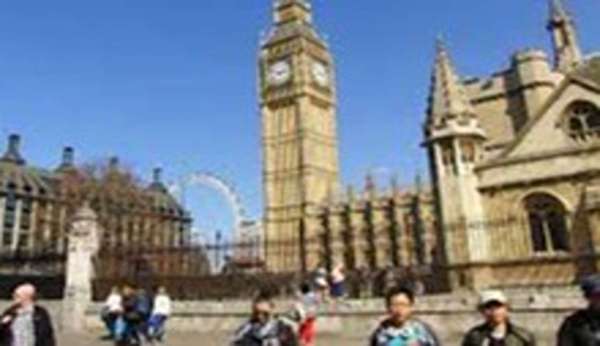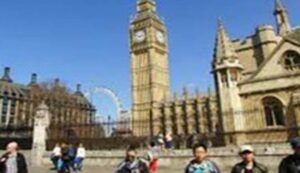
Britain: As part of increased security measures, the UK implemented a digital Electronic Travel Authorization (ETA) permit on Wednesday, imposing additional online entry criteria for tourists from Europe.

Travelers from Europe need to get an ETA permit, which costs £10 (12 euros) at first and £16 starting on April 9. Since Britain’s exit from the EU in 2020, the system has already been in place for travelers from the United States, Canada, and other countries that do not need a visa.
Phil Douglas, the head of the UK border police, emphasized that this adoption is primarily a security measure and verified it as part of a larger worldwide rollout.
In addition to facilitating background checks on criminal and immigration histories, the technology seeks to speed up admission processes. Douglas emphasized that eGates would enable authorized travelers to cross the border more quickly.
“The quid pro quo for the individual, though, is that we are building a contactless border, so if they’re cleared for entry, they’ll be able to use our new eGates and they’ll be able to go through the border much more quickly,” he said.
Throughout the first buffer period, which is anticipated to last until “September or October,” travelers are still permitted to continue their travels. The ETA is good for stays of up to six months and is valid for two years.
In March, Europeans from around 30 countries—aside from Ireland—were able to apply. It usually takes ten minutes for applicants to upload their passport pictures and facial scans via a government website or smartphone app.
Although the majority of applications are processed quickly, officials recommend allowing three working days. In response to Heathrow Airport’s worries with European connection traffic, transit passengers who do not enter UK borders are exempt from the requirement, which applies to all ages.
The program was first introduced for Qatar in 2023 before being extended to other Gulf countries. Heathrow handled 84 million passengers in 2024, with a third coming from the EU. About 50 more nations, including Argentina, South Korea, and New Zealand, were added by January.